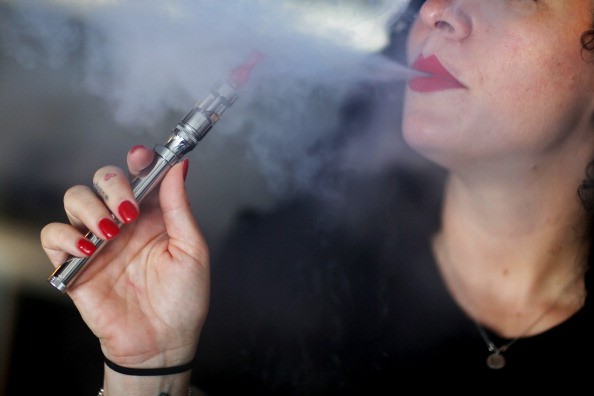
The attorneys general of 33 U.S. states are urging the U.S. Food and Drug Administration to require that nicotine-containing liquids and other novel tobacco products be labeled with health warnings. The attorneys general sent a letter to the FDA asking it to take action in light of the increasing number of cases of liquid nicotine poisoning among children.
Liquid nicotine is used in electronic cigarettes, but the letter also referred to tobacco products such as dissolvables, lotions, gels, and drinks.
"Child-resistant packaging and health warnings are an essential step to keeping these potentially lethal toxins out of the hands of our children. The FDA must step up and regulate the sale and packaging of these dangerous products before any more kids are harmed," the letter stated. It was signed by New York's attorney general Eric Schneiderman, among others. Three months ago, New York fined four makers of liquid nicotine that is used in electronic cigarettes over packaging that was too easy for children to open, in violation of a law enacted in 2014.
More than cases of 3,700 children exposed to liquid nicotine were reported to poison control centers in 2014, according to the American Association of Poison Control Centers. This is a sharp rise in the number of cases from previous years, and is a reflection of the growing popularity of e-cigarettes. Half of these cases occurred in children under the age of 5, including an 18-month-old toddler in New York who died after ingesting liquid nicotine.
The letter cited a survey in which 87 percent of adult respondents supported FDA requirements for child-resistant packaging for all e-cigarettes and liquid nicotine refills.
Some types of e-cigarettes use a small tank that the user fills with liquid nicotine, which comes in several flavors and scents. Liquid nicotine contains nicotine, which is extracted from tobacco, and other chemical additives. Other e-cigarettes use a disposable cartridge that the user replaces when it is empty. The device heats the liquid into a vapor that the user inhales.
The letter was also signed by the attorneys general of Alabama, California, Connecticut, Delaware, District of Columbia, Georgia, Hawaii, Idaho, Illinois, Indiana, Kentucky, Maine, Maryland, Massachusetts, Michigan, Mississippi, Missouri, Montana, New Hampshire, New Mexico, Ohio, Oregon, Pennsylvania, Puerto Rico, Rhode Island, South Dakota, Tennessee, Utah, Vermont, Virgin Islands, Washington, and Wyoming.



